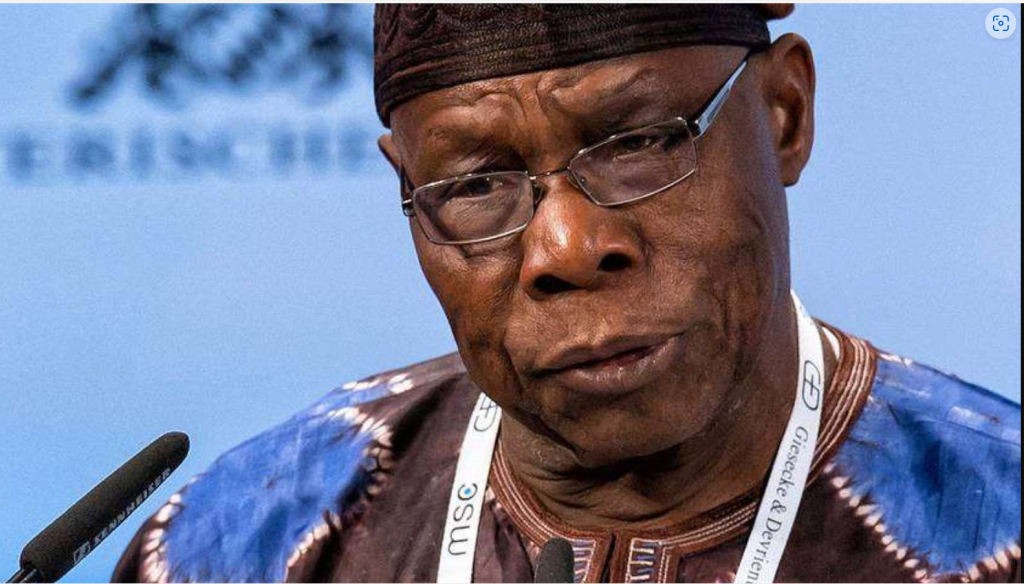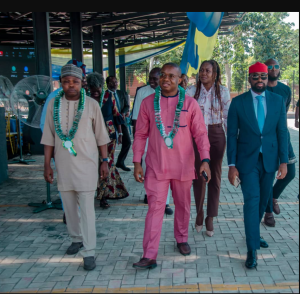
A System Change For Abandoned Projects

Former President Olusegun Obasanjo recently spoke at an event, calling out a chronic issue that has plagued Nigeria for decades: the abandonment of government projects. He likened Nigeria to a “burial ground for policies,” highlighting how succeeding administrations tend to discard projects started by their predecessors, regardless of their potential impact or the resources already committed. This alarming trend undermines the notion that “government is a continuum” and severely hampers Nigeria’s development trajectory.
The figures are staggering. In 2011, a committee commissioned by then-President Goodluck Jonathan assessed the situation across the 36 states and discovered 11,866 abandoned projects. These ranged from power plants and steel mills to housing developments and major roadways. If completed, these projects could have drastically transformed Nigeria’s infrastructure and quality of life, enhancing energy access, boosting industrial capacity, and expanding housing options for a growing population. Yet, despite these findings, no concrete action was taken to revive or continue these projects. Over a decade later, the problem persists with little to no progress.
In May 2024, the Senate led by Godswill Akpabio set up another committee to investigate these neglected ventures. Although the committee was expected to report back within a month, nearly half a year has passed, and nothing substantial has been heard. It is no wonder that many Nigerians have come to view “committees” as bureaucratic stalls, rather than agents of meaningful change.
Consider, for example, the Ajaokuta Steel Complex in Kogi State, initiated in 1978 with the aim of driving Nigeria’s industrialization. By 1991, it had reached 98% completion at a cost of $650 million, only to be left in limbo. Similar projects, such as the 3,050 MW Mambilla hydropower project in Taraba State, the 700 MW Zungeru hydroelectric project in Niger State, and other dams and power plants, were designed to boost Nigeria’s energy supply and enable sustainable water resource management. Instead, these half-finished projects now stand as relics, providing no benefit to the millions of Nigerians who still lack electricity and clean water.
The National Bureau of Statistics reports that 133 million Nigerians, or 63% of the population, live in multidimensional poverty, reflecting challenges beyond mere income deprivation, such as poor housing, limited access to education, and inadequate healthcare. Nigeria ranks at a mere 0.548 on the Human Development Index (HDI), indicating low progress in expanding people’s choices and capabilities. Neglected infrastructure projects directly contribute to this dismal HDI score, as they deny citizens access to opportunities, stifle economic growth, and exacerbate societal inequalities.
Experts attribute the abandonment of these projects to several factors, including inadequate project planning, corruption, weak governance structures, and an inefficient legal system. The Chartered Institute of Project Managers of Nigeria estimates the value of these abandoned projects at a staggering N17 trillion, underscoring the profound financial waste and lost development potential. Aside from economic mismanagement, personal grievances and political rivalries often play a part. One former governor famously removed anything that bore the mark of his predecessor, going as far as to erase photos and rename buildings. This political pettiness wastes public resources and erodes trust in government.
The consequences of abandoned projects are clear. They undermine governance, waste billions in taxpayer money, and leave Nigerians underserved and disconnected. The Plateau Olympic Stadium, initiated in 1988 and left incomplete despite N7 billion in sunk costs, is a glaring example of this waste. Nigeria’s capital, Abuja, was supposed to benefit from a $460 million CCTV project aimed at reducing crime. This initiative, too, remains unfinished, and Abuja has been left without a modern surveillance system amid rising insecurity. The iconic Federal Secretariat in Ikoyi, once a bustling hub for civil servants, is now an abandoned shell, overtaken by rodents and vagrants.
Neglected projects in the energy sector alone have exacerbated Nigeria’s power crisis, which now costs the economy nearly $29 billion annually in lost productivity, according to the African Development Bank. With over 86 million Nigerians lacking reliable electricity, businesses and individuals are forced to spend roughly $14 billion a year on power generators and fuel. Had these energy projects been completed and maintained, Nigeria could have reduced this massive expenditure and improved national productivity. Instead, the lack of electricity continues to cripple small and medium-sized enterprises, hampers learning, and places Nigerian industries at a competitive disadvantage on the global stage.
While the government’s shortcomings are clear, the private sector can step in to help alleviate some of these developmental challenges through sustainable and impactful CSR initiatives. Many companies, particularly in the energy and technology sectors, have begun launching programs that prioritize energy efficiency, clean water access, and skill development for local communities. Through CSR, businesses can contribute to completing or maintaining smaller-scale public projects, especially in rural areas that are often neglected in government budgets. Moreover, by investing in renewable energy solutions, the private sector can support communities in reducing their reliance on expensive and polluting diesel generators, aligning business goals with Nigeria’s sustainable development objectives.
Similarly, multinational companies operating in Nigeria can incorporate local project support into their CSR frameworks, such as funding the completion of community healthcare centers or schools, which can have an immediate positive impact on the quality of life for residents. These initiatives not only improve public welfare but also foster goodwill and strengthen relationships between businesses and local communities.
CSR REPORTERS, therefore, calls for Systemic Change. Abandoning projects is not only financially reckless but socially irresponsible. For Nigeria to reverse this trend, both the government and the private sector must recognize the critical importance of finishing what they start. Effective project planning, transparent contract management, and sustained political will are necessary to ensure continuity. As Nigeria seeks to boost its Human Development Index and tackle its multidimensional poverty crisis, reviving and completing these abandoned projects is essential.
In truth, a shift in mindset is needed—one that values long-term societal benefits over short-term political gains. Only then can Nigeria transform from a “burial ground for policies” into a land of opportunity, stability, and sustainable growth.









